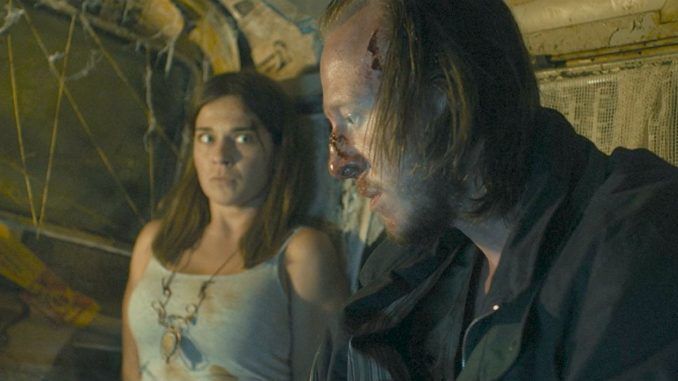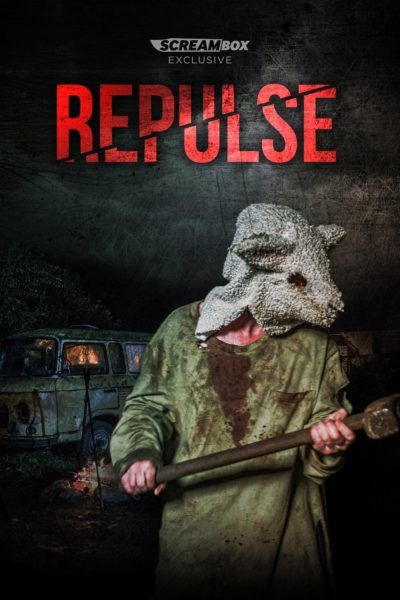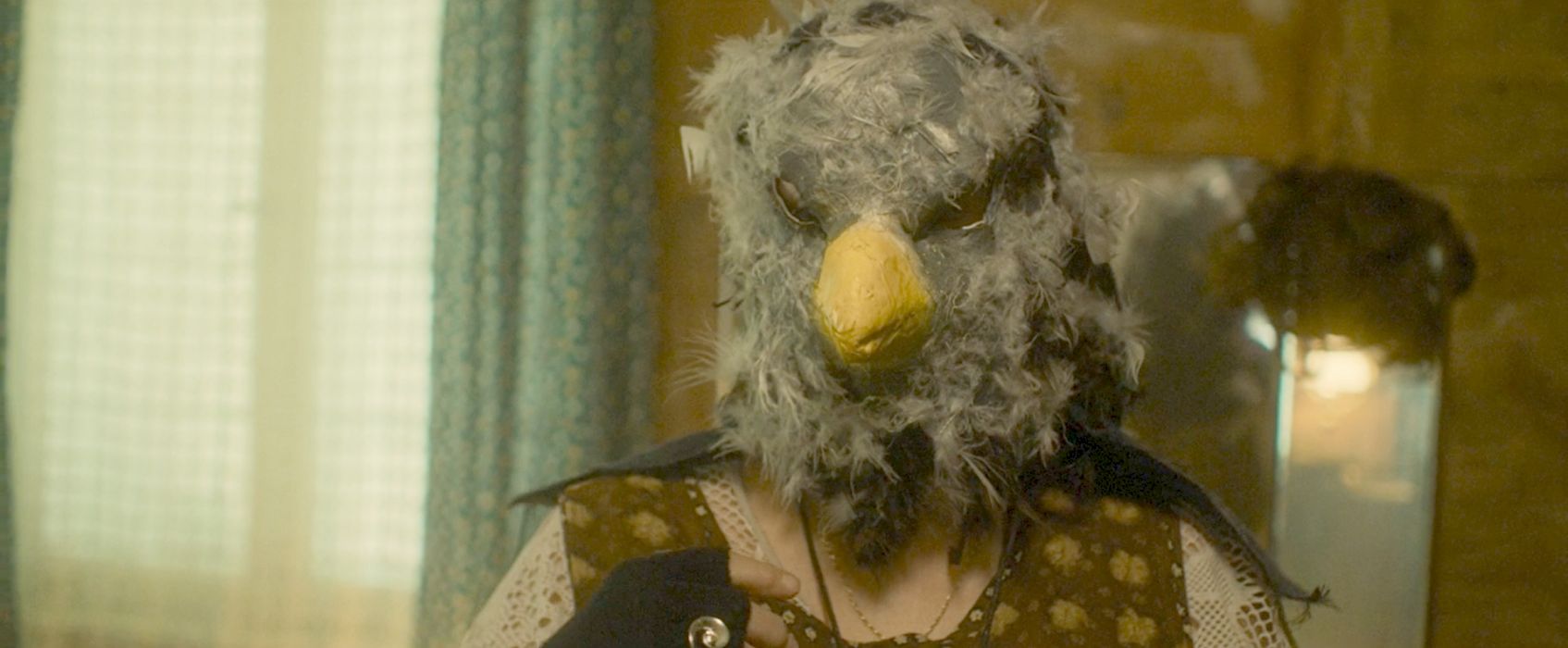
Rating: B-
Dir: Emil Krizka
Star: Pavla Gajdosíková, Stepán Kozub, Petr Panzenberger, Alena Sasínová-Polarczyk
I mentioned in the introduction how geography has gotten a considerably harder subject since I was born, because there are now a lot more countries. Well, some places are not helping matters. There used to be a country called Czechoslovakia. But in 1992, it split into two separate, sovereign nations. At least this was amicable, in contrast to the way the former Yugoslavia fell apart, in a welter of war and genocide. Indeed, so smooth was the dissolution, it was known as the ‘Velvet Divorce’. And so, we had the Czech Republic and Slovakia: two countries, but at least their separate names made eminent sense. I do not foresee America ever splitting into “United” and “States.”
But then, a few years ago, I was watching the Eurovision Song Contest, and they announced an entry from “Czechia”. Initially, I thought they said “Chechnya,” and was kinda impressed they’d let a severely rebellious Russian province take part. Turned out, this was not the case. The Czech Republic was now identifying as “Czechia”, though not everyone is respecting their pronouns. Wikipedia, foe example, still currently has the article under the old name: “Czechia redirects here,” it says, firmly. Annoyed by the country’s decision, I’m tempted to go even more old-school and deadname it as “Bohemia,” because such a big change in a country’s name is not common. Most are fairly trivial, e.g. Turkey becoming Türkiye, or Macedonia slapping “North” on itself, presumably to distinguish themselves from any other Macedonias.
 Unlike some locations in this series, there’s a fairly rich history of horror here, going back to 1920’s Sílený lékar (A Powerful Doctor), about a physician with a sideline in human experimentation. 1936 saw popular local legend, The Golem of Prague, made into a feature locally (albeit in French) by Julien Duvivier, Le Golem. We covered one of the country’s more recent entries in last year’s 31 Days of Vampires feature: blood-drinking car story, Ferat Vampire, and you can cross the zombie sub-genre off the list, thanks to Choking Hazard. There is also the surreal work of renowned stop-motion animator Jan Svankmajer, a lot of which is… if not exactly horror, certainly horror-adjacent, given his fondness for grotesque and disturbing imagery.
Unlike some locations in this series, there’s a fairly rich history of horror here, going back to 1920’s Sílený lékar (A Powerful Doctor), about a physician with a sideline in human experimentation. 1936 saw popular local legend, The Golem of Prague, made into a feature locally (albeit in French) by Julien Duvivier, Le Golem. We covered one of the country’s more recent entries in last year’s 31 Days of Vampires feature: blood-drinking car story, Ferat Vampire, and you can cross the zombie sub-genre off the list, thanks to Choking Hazard. There is also the surreal work of renowned stop-motion animator Jan Svankmajer, a lot of which is… if not exactly horror, certainly horror-adjacent, given his fondness for grotesque and disturbing imagery.
The country has also been used by a number of Hollywood productions, though I’m not certain they would want to be reminded about their role in Alien vs. Predator. When it came down to recent horror for this feature though, the choice basically came down to Repulse or Ghoul. The latter had two big strikes against it, the first, it being found-footage, and I’ve watched enough of that shit this month. Secondly, while it was a Czech production, it was actually set in the Ukraine: about an investigation by three American film-makers into the story of a notorious cannibal (clearly inspired by Andrei Chikatilo). Besides, Repulse advertised itself with the tagline, “The darkest and most disturbing Czech movie ever produced.” Really? Let me remind you, I’ve seen Conspirators of Pleasure. Ok, bring it on.
To deflate that spot of hyperbole, it’s not A Bohemian Movie, put it that way. It has its merits, and to its credit, is perhaps the most inaccessible entry of the month. Dialogue is kept to a minimum – indeed, it’s entirely non-existent for the first thirteen minutes – and the timeline is as fractured as the broken glass which appears to be a common theme. You’ll be left trying to assemble the pieces in your head, and I’m not sure I got it right. I think, by the end, I was jamming them in as best I could, and would expect a few square pegs got hammered into round plot-holes. A rewatch might help. However, it’s a bit of a grim slog, and not something I’d voluntarily sit through again for a while.
It’s the tale of two badly dysfunctional families, whose paths cross with a devastating impact on them both. There’s married couple Kateřina (Gajdošíková) and Robert (Panzenberger), whose well-heeled live is clearly loveless. He’s an abusive fuck, but let’s face it, she isn’t helping, deliberately flaunting her affair in his face. Their young daughter just puts her headphones on and zones out. But they’re positively playing Happy Families compared to Viktor (Kozub), who lives with his mom (Sasínová-Polarczyk) in a shack. She dominates him entirely, skewering his tongue as punishment. For whatever reason, they have a kidnapped woman. Going by her pregnancy, she has been there a while, getting raped by Viktor, who has a fondness for wearing animal masks.
 Things escalate after Viktor’s mom falls ill. When driving her to hospital, he gets into a crash caused by Robert, and loses the lynchpin of his life. In revenge, he breaks into Robert’s house and then carjacks Kateřina. But her husband’s abuse might have toughened his new victim up: it feels like one of the twisted morals here is, “What does not kill you, makes you stronger.” It certainly seems to be a cynical film, with no-one here whom you’d call likeable, and sympathetic is a stretch too. Everyone here is an abuser to some degree, even the young daughter with her deliberate refusal to engage. Yet with the possible exception of Viktor’s mom, who (as shown above) may simply be mad as a coot, they are all victims too.
Things escalate after Viktor’s mom falls ill. When driving her to hospital, he gets into a crash caused by Robert, and loses the lynchpin of his life. In revenge, he breaks into Robert’s house and then carjacks Kateřina. But her husband’s abuse might have toughened his new victim up: it feels like one of the twisted morals here is, “What does not kill you, makes you stronger.” It certainly seems to be a cynical film, with no-one here whom you’d call likeable, and sympathetic is a stretch too. Everyone here is an abuser to some degree, even the young daughter with her deliberate refusal to engage. Yet with the possible exception of Viktor’s mom, who (as shown above) may simply be mad as a coot, they are all victims too.
It is undeniably dark, with just the faintest glimpse of light at the end when one character finally shows a trace of humanity. This is unexpected, to the point of somewhat implausible. However, I cannot say I found it particularly disturbing, with a tendency for a lot of stuff to happen off-camera. It is more a sad indictment of people. Humanity sucks. Inhumanity sucks harder. It’s effective as such, and Krizka has to be commended for an ability to get these points over without dialogue; the anti-Tarantino, if you like. While I may not have needed to take a shower after watching this; I could perhaps have used some hand-sanitizer.
This review is part of our October 2024 feature, 31 More Countries of Horror.
